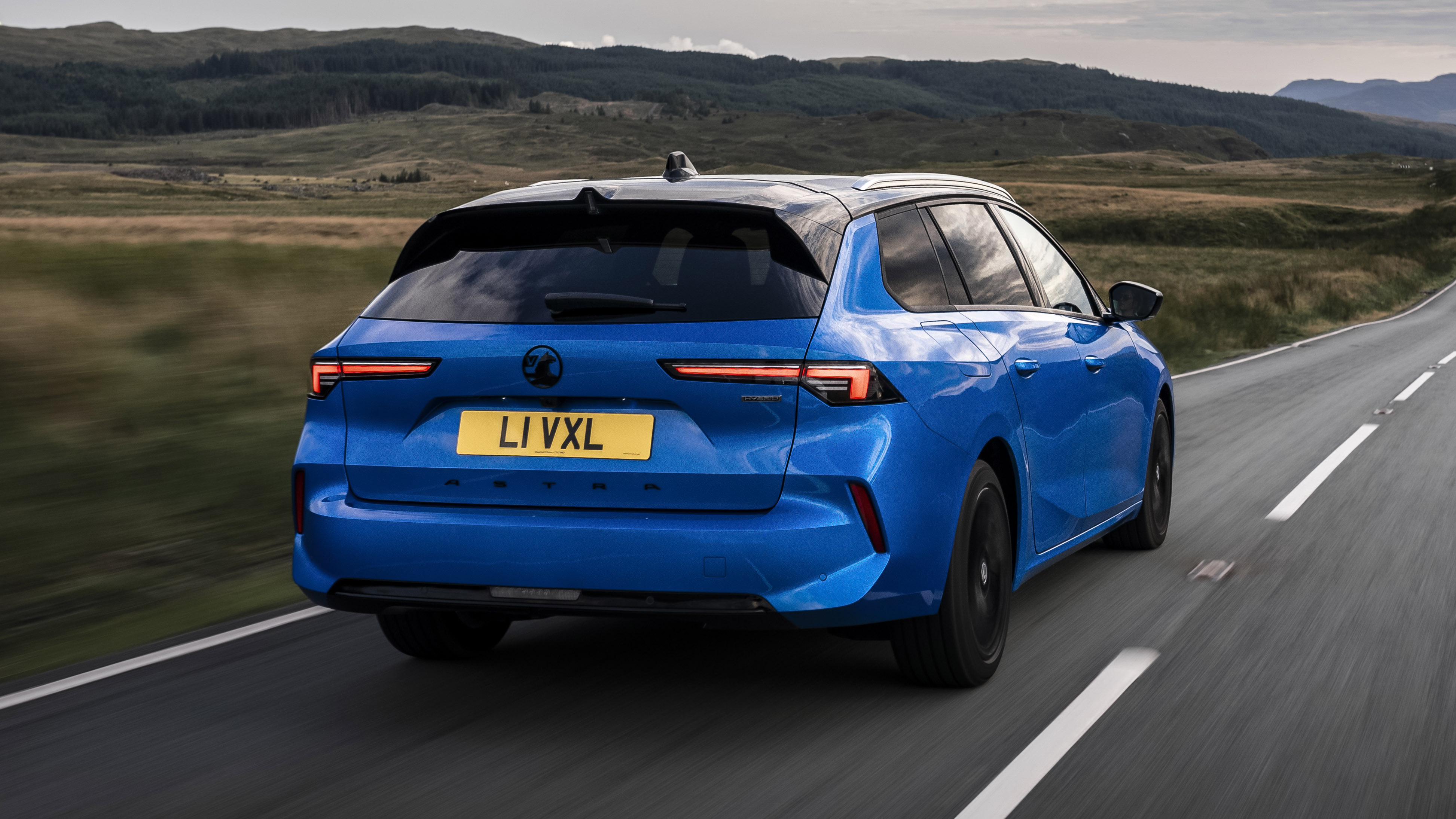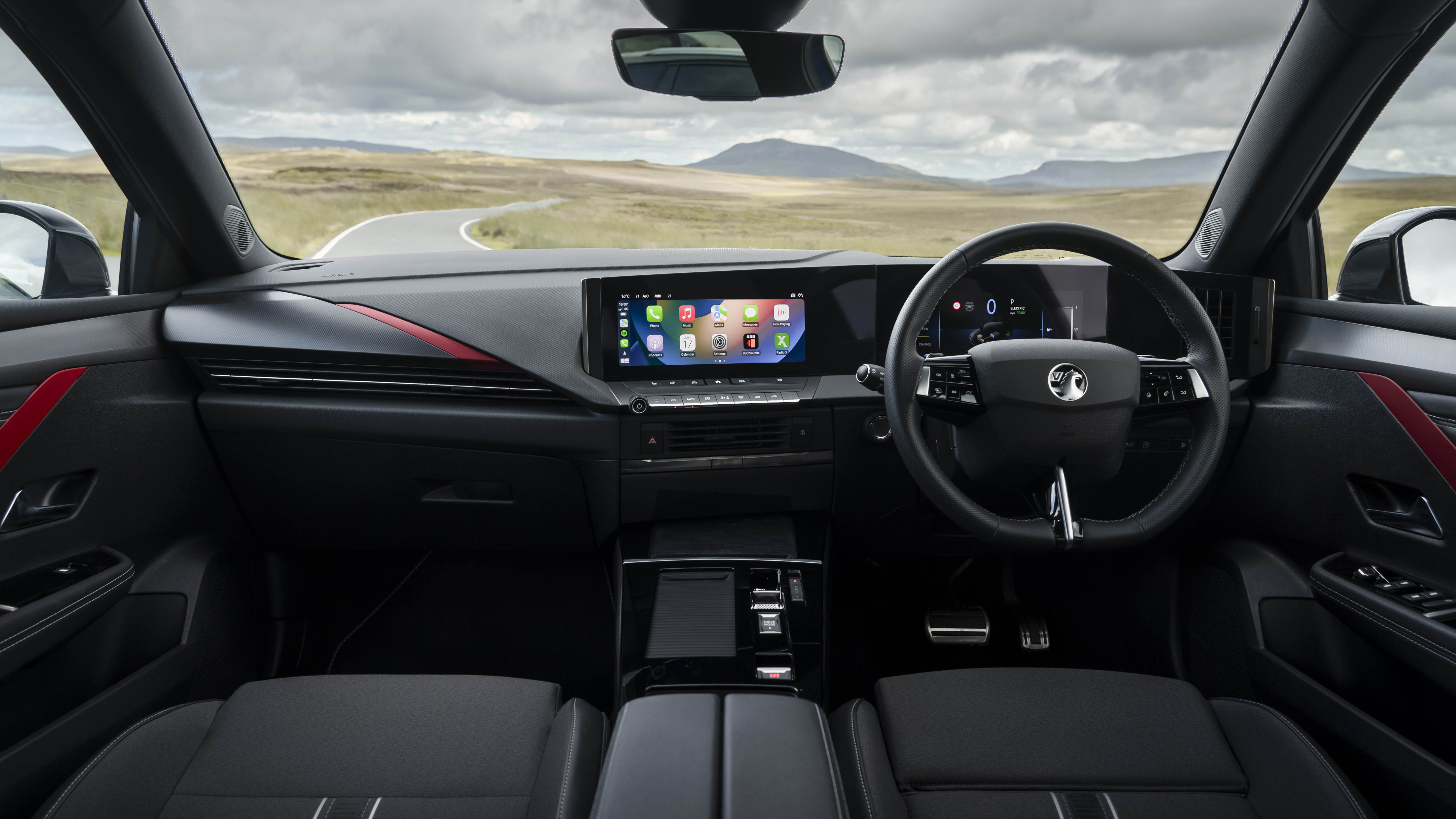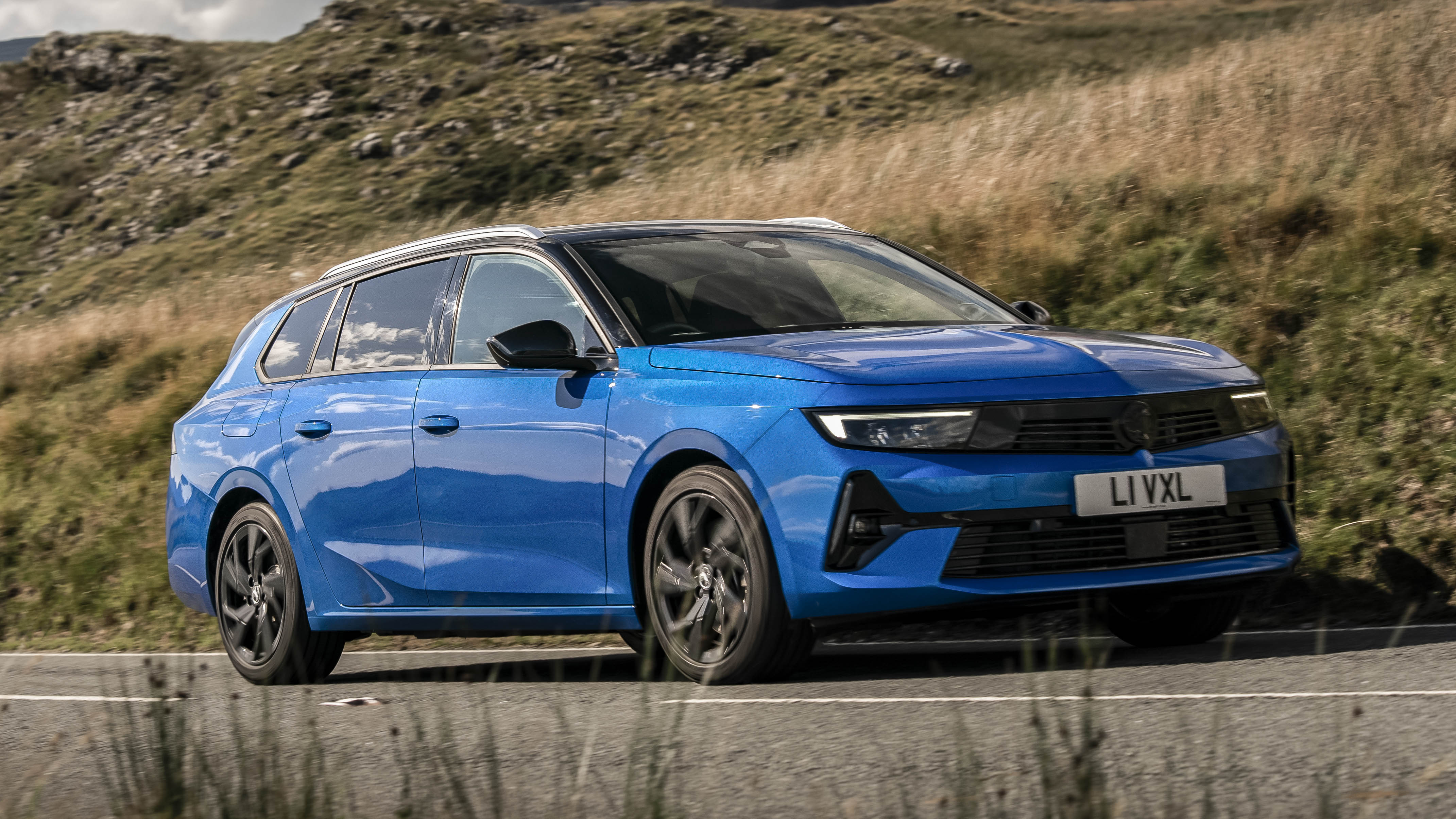
Interior
What is it like on the inside?
As we mentioned earlier on, Vauxhall has made big gains in here. Up front you won’t really be able to tell the Sports Tourer apart from the hatch. It’s dominated by the same Pure Panel cockpit with two 10-inch screens for the dial display and infotainment. You get that no matter what trim level you go for, and the central touchscreen is responsive and features wireless Apple CarPlay and Android Auto.
The dial display can be slightly crowded and difficult to read if you’ve got the sat nav going and cruise control on, but switch things off and it’ll simplify its readouts.
The steering wheel is adorned with proper physical buttons, and there’s more under the central screen that operate the climate controls and shortcuts for the various menus. The materials used are generally pretty good too. Look hard and there are some cheaper plastics, but everything you’d use every day is plenty premium enough.
A couple of gripes? Space in the rear seats isn’t the greatest and the chunky D pillars impede rear visibility. A 360-degree camera is optional on the base spec Design trim and standard from there on in though.
The seats are Vauxhall’s AGR-certified (a German campaign for ‘healthier backs’) units and are very comfortable. Upgrade to nappa leather and they’ll be ventilated with a massage function too.
Boot space is 597 litres in internal combustion-engined iterations and 516 litres in the PHEV. That’s slightly down on the 608/548 litres you get in the Peugeot with the same powertrains and a long way down on the vast Skoda Octavia Estate’s 640-litre chasm. Still, it’s not to be sniffed at and there’s something called the ‘Intelli-Space flex load floor’ that allows you to move the floor around to create different compartments. Neat touch. In the PHEV there’s space for your cables under said floor too.
Featured

Trending this week
- Car Review
BMW iX3






